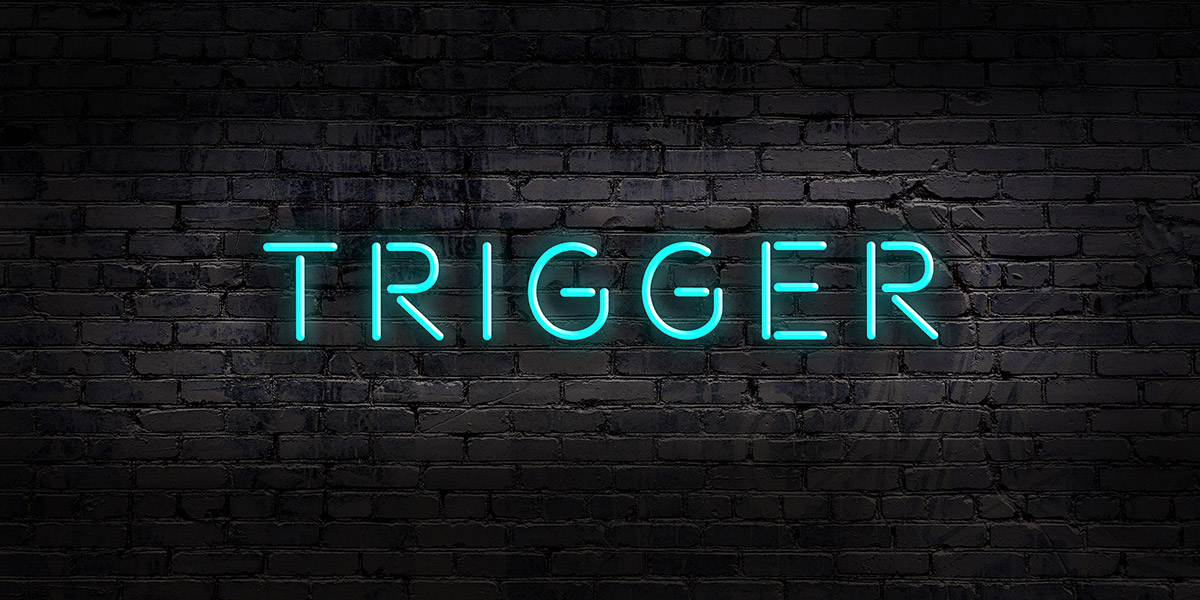For many, relapse is not uncommon during the recovery journey. When we recognize the risk of relapse, we can bring about a better awareness of what may trigger a slip or relapse and learn effective ways to recognize triggers that can lead to substance use and create a plan to help maintain sobriety.
5 Addiction Triggers
A trigger can be an emotional state, a particular environment, or a social situation that draws old memories of substance use. It can create strong emotions and urges and create a vulnerable situation. While not all triggers mean a relapse is inevitable, it can make dealing with cravings more difficult.
Another way you can look at ‘triggers’ is as learned physical and emotional cues. When drugs and alcohol are part of everyday life, parts of the daily routine are often associated with using. It’s important to remember that although triggers create discomfort and frustration, they are a natural part of recovery, and knowing what to expect and how to cope can help avoid resist the pressure or desire to use.
The following talks about 5 of the most common triggers that may occur during drug and alcohol recovery and ways you can defend yourself from a slip or relapse.
Increased Stress
We know how stress from work, home, or life can put your senses in overdrive. Whether the feel is constant, such as one can experience with chronic stress, or newly onset, stress can weigh heavy and add a burden to your day.
Dealing with added stress during recovery can be triggering. If you find yourself falling under the weight of stress, take self-care measures and offer yourself reassurance that stress is a normal component of life, and you can take measures to create a more balanced and manageable life.
Identify Your Triggers
Recovery is a journey, and when you can identify the triggers in your life, you can help enhance your recovery. For help on your path, reach out to Pura Vida.
Strong Emotions
Intense feelings and emotions can feel overwhelming. A lot of times, we associate strong emotions with negative feelings, such as anger or sadness, however, even positive emotions can produce cravings. While we can’t avoid emotions, we can identify those that trigger and develop coping skills to help avoid a relapse.
For instance, when feeling unhappy, it can be helpful to recognize this feeling is natural and unavoidable. Understand sadness is temporary and take advantage of ways to challenge negative thought patterns or other coping measures learned through counseling. On the opposite side of the emotion spectrum, enthusiasm, a sense of accomplishment, and overjoy can trigger old celebratory cues, and invite cravings. Making a plan to celebrate or reward yourself in healthy ways, can help curb cravings.
Over-Confidence
Early in recovery, many realize their vulnerability and take extra measures of caution to maintain sobriety. As time goes on, many people gain some well-deserved added self-confidence.
With increased time under the belt and a boosted sense of self, some people find their condition is “cured” and they may find themselves in situations where they think “just one” won’t do any harm. This slip can turn into a full-blown relapse.
Loneliness or Isolation
Falling into loneliness can lead many on a downward spiral. And with that, if combined with depression or anxiety, isolation can deepen those feelings of being alone. Alone or in combination, loneliness and isolation can trigger and make it easier to justify drug or alcohol use.
While we all experience feeling alone from time to time, engaging in a community support group or turning to a trusted friend or sponsor can help deal with feelings of loneliness and lessen the effects of this type of trigger.
Nostalgia for Drugs and/or Alcohol
Men and women in recovery realize the harmful effects of addiction, but sometimes nostalgia creeps in and can make using drugs and/or alcohol appear not as bad as we may think.
Spending time missing the ‘good ‘ole days’ is a major trigger and often a red flag warning for relapse. When this happens, it’s important to reach out to your support system, counselor, or friend.
Drug and Alcohol Treatment Program
Pura Vida drug and alcohol treatment program offers an evidence-based program and helps men and women identify triggers and develop solutions for a life free from alcohol and drugs. Contact us by phone or online if you or someone in your life needs help.





